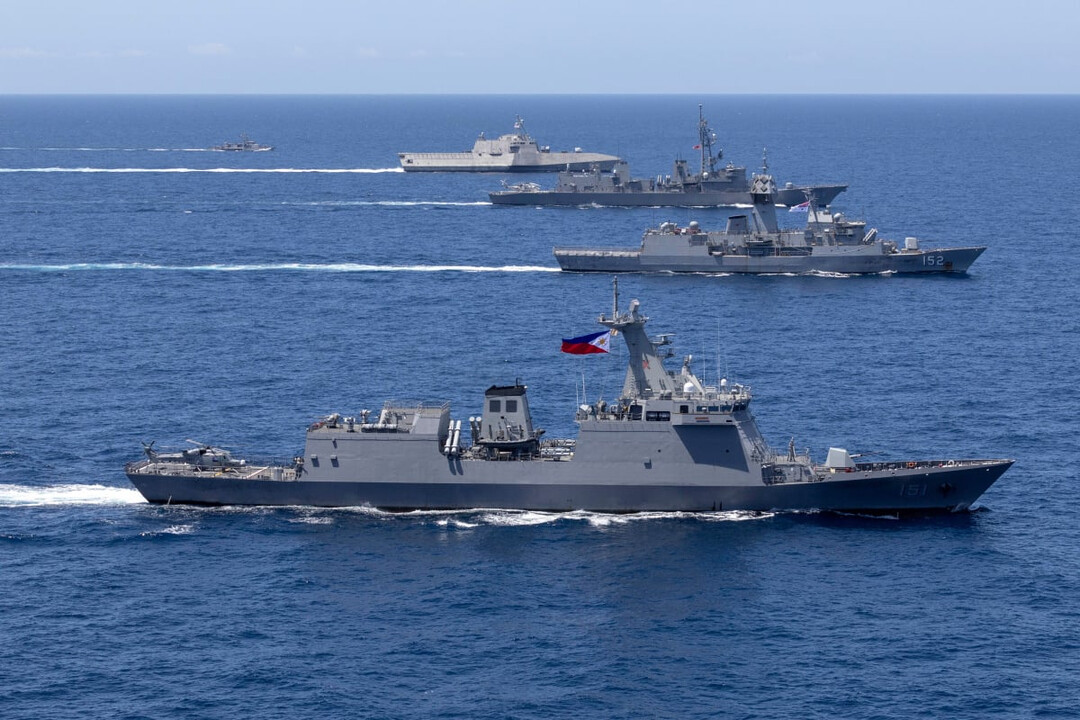
The Philippines is shifting its strategic focus from decades of counterinsurgency operations to territorial defense. To this end, the Philippine military is actively implementing the 'Comprehensive Archipelagic Defense Concept (CADC)' and accelerating its military modernization.
Officially launched in 2024, the CADC aims to equip the Philippine military with the capability to project military power across its archipelago to deter unwanted incursions or illegal activities and secure national interests from natural resources within its internationally recognized Exclusive Economic Zone (EEZ). The plan includes enhanced air and sea defense training, improved surveillance and reconnaissance capabilities, and other force augmentation elements.
At the heart of this strategic shift by the Philippines is the realistic backdrop of escalating Chinese threats surrounding the South China Sea territorial disputes.
In an early 2025 interview with the Hoover Institution, a U.S. think tank, Philippine Defense Secretary Gilberto Teodoro Jr. emphasized, "What China is doing compels the Philippines to defend itself and assert our rights against China." He criticized, "In our exclusive economic zone, where the Philippines has the sole right to explore and exploit resources, China is seizing the Philippines' sovereign rights not only with words but also with force," underscoring the inevitability of pursuing the CADC.
In conjunction with the CADC, the Philippine military is operating a 10-year, $35 billion Third Horizon modernization program. According to a February 2025 report in 'The Diplomat' magazine, this modernization plan focuses on enhancing situational awareness, communication connectivity, and Command, Control, Communications, Computers, Intelligence, Surveillance, Target Acquisition, and Reconnaissance (C4ISTAR) systems. 1 Furthermore, strengthening area denial capabilities and maritime and air deterrence reflects the Philippines' intensive investment in external defense.
Joshua Bernard Espeña, an international relations lecturer at the Polytechnic University of the Philippines, analyzed in an interview with 'FORUM', "The AFP's strategic realignment is making remarkable progress. Currently, counterinsurgency operations account for about 20% of the overall mission, and there is an increasing focus on broader strategic objectives."
Espeña cited the alignment of training, military doctrine, and intelligence sharing with allies to enhance interoperability as one of the CADC's main priorities. The Philippines has been promoting security cooperation and joint operations with allied and partner nations in recent years to strengthen its deterrence.
Indeed, in late March 2025, the Philippines and the United States began their annual 'Salaknib' exercise in the Philippines. This exercise, aimed at improving warfighting capabilities and reaffirming commitments to Manila’s territorial integrity, is part of the 'Balikatan' series of multinational exercises hosted by the Philippines.
In the same month, U.S. Defense Secretary Pete Hegseth announced that Washington would deploy more advanced forces, including anti-ship missile systems and unmanned surface vessels, to its long-time ally the Philippines during the Balikatan exercises, expressing a strong commitment to Philippine security support.
Espeña assessed that this cooperation with security partners demonstrates the Philippines' leading role while aligning with the regional goals of allies such as Australia, Japan, and the United States.
Meanwhile, Espeña pointed out that logistics support capabilities are key to the effective implementation of the CADC. He emphasized, "Defending an archipelago with a vast coastline, numerous maritime chokepoints, a dangerous EEZ, and uncomfortable neighbors is no easy task. Therefore, logistics support is the arbiter of opportunity." He added, "Here, the development of a strong domestic defense industry is essential. The Philippines needs to frankly state its position to its allies on what it will do to deter China and communicate what is needed to link resources and industrial bases for future collective deterrence."
Maria T. Reyes, a 'FORUM' contributor based in Manila, also projected that the Philippines' military modernization efforts and strengthened international cooperation will be an important step towards easing tensions and promoting regional stability in the South China Sea. The Philippines' pursuit of the CADC is not merely about increasing military power but rather demonstrates the strong will of the Philippine government and its people to safeguard peace and stability in the region.
[Copyright (c) Global Economic Times. All Rights Reserved.]




























